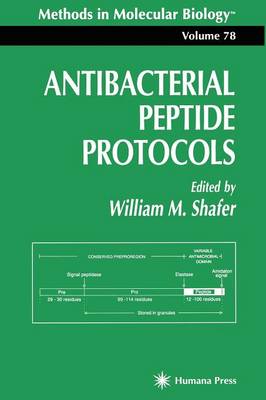As this book. Antibacterial Peptide Protocols, will attest, my enthusi asm for the field of antibacterial peptides is based on a conviction (and I am unashamed to say, prejudice) that these substances are in essence antibiotics produced by the host that then participate in host defense against infectious agents. Because of their capacity to exert antibiotic-like action against patho genic microorganisms (bacteria, fungi, parasites, and viruses), there is reason to believe that these agents will soon be used clinically to treat infectious diseases. In fact, in recent years, biotechnology companies have been formed for the sole purpose of developing antibacterial peptides for clinical use. It should be emphasized that antibacterial peptides will likely play a major role in the treatment of infectious diseases, particularly with the increasing prob lem of multidrug-resistant microbes and the relative dearth of new antibiotics being provided by pharmaceutical companies. The topic of this volume of Methods in Molecular Biology, the diverse methods used in research on antibacterial peptides, is thus quite timely. As the subject of antibacterial peptides develops into its own discipline (something strongly suggested by the explosion in the number of papers published over the past decade), it is essential that reliable techniques and strategies be made available not only to those of us in the field, but also to the newcomers and researchers in complementary disciplines.
- ISBN13 9781617370274
- Publish Date 10 November 2010 (first published 8 July 1997)
- Publish Status Active
- Publish Country US
- Imprint Humana Press Inc.
- Edition Softcover reprint of hardcover 1st ed. 1997
- Format Paperback
- Pages 259
- Language English
